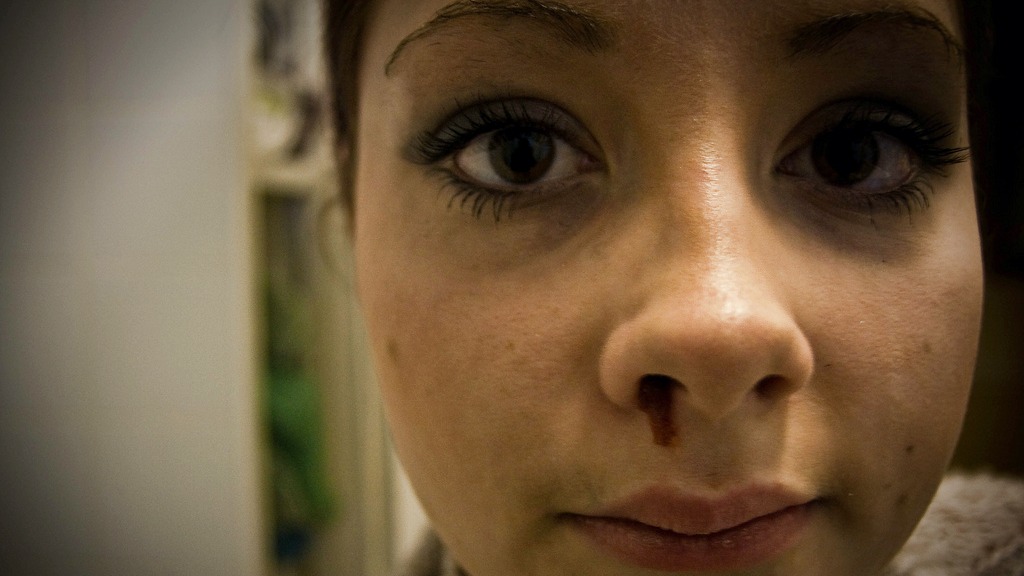Vast amounts of ink have been spilled pointing out how our attempts at charity go about it wrong. TOMS Shoes founder Blake Mycoskie came under fire for his model, which donated a pair of shoes to someone in a developing country for each pair sold, arguably leaving foreign markets flooded with an overabundance of shoes and putting locals out of business. (Mycoskie may be improving his business model these days.) Other criticized aid ideas include cartons of unwanted T-shirts sent to African nations; short-term missions trips, if not planned well; and, generally, any idea that involves a relatively wealthy and privileged person thinking she can use physical resources to stem the tide of a disaster by buying, building, or visiting.
Elizabeth Gerhardt would add to that list our project-based attempts to alleviate gender violence.
Too many Christians, she says, are blind to institutional frameworks — some as close as our own families, churches, and communities — that perpetuate gender violence as Christians go about planning fundraisers and mission trips that, at best, bandage the festering issue.
"Calls to care for the poor and oppressed and to denounce unjust systems that maintain material and physical deprivation are often met by resistance by faithful Christians," Gerhardt says in her new book, The Cross and Gendercide (InterVarsity, 2014). "Philanthropy and charity are often applauded and encouraged while the call for changes in systems that support injustice is met with suspicion and division within the Christian community."
And gender violence is no small problem. According to the World Health Organization, around one-third of all women in the world have experienced some form of physical or sexual abuse from their partners. One-fifth to one-third of women in developing countries reported their first sexual experience as forced.
In addition, many are victims of human trafficking, a crime that overwhelmingly affects women: 79 percent of all human trafficking victims reported in 2006 (the latest year U.N. data is available) were women or girls. According to a State Department report, as many as 27 million men, women, and children are trafficking victims at any given time. The U.N. acknowledges that its data likely underreports the problem and that "criminal justice data do not accurately represent the nature or the extent of the underlying activity any more than a fisherman's catch represents the state of the fish in the sea."
Even in U.S. churches, our responses can perpetuate the problem: Of 1,000 pastors surveyed by LifeWay Research in a recent poll for Sojourners, most vastly underestimated the sexual abuse likely taking place in their congregations. Fewer than half were familiar with domestic violence resources in the local community. Most said they have responded to reports of sexual or domestic violence by recommending couples or marriage counseling, something the poll report points out is a "dangerous or even potentially lethal response."
To have a lasting impact on the flood of gendered violence, Gerhardt suggests, it's not enough to give money — even lots of money — to International Justice Mission, or spend a summer volunteering at a battered women's shelter. In responding to institutional evil, we must first look to cleanse institutions, and the best place to start is close to home.
Rescuing girls from brothels or publicly criticizing acid attacks or female genital mutilation will not stem the tide of gender violence, Gerhardt argues; it will only end when today's church follows the lead of Dietrich Bonhoeffer, a German Christian who denounced his country's official church, spoke out against the Nazi party, and was hanged for participating in a Protestant resistance movement.
Like Bonhoeffer, we should take stands against institutions that create demand and support for the practices. In faithful communities, we should thoughtfully consider how to most effectively resist private and public practices of violence. We should start close to home, Gerhardt argues, by working to educate and inform our own churches and communities about appropriate responses to domestic violence.
C.S. Lewis notes that God "could, if he chose, repair our bodies miraculously without food, or give us food without the aid of farmers, bakers, and butchers; or knowledge without the aid of learned men; or convert the heathen without missionaries. Instead, he allows soils and weather and animals and the muscles, minds, and wills of men to cooperate in the execution of his will."
This leaves the church with tremendous power and accompanying responsibility. Gerhardt provides a guide to think through how to use that power best.
Another book that might help churches start on a path toward action is Justice Awakening (InterVarsity, 2014). In the book Eddie Byun, a pastor in South Korea, walks through basics of human trafficking and theological grounding for the pursuit of justice. The brief chapters, which feature discussion questions and prayer guides, are easily digestible. While Gerhardt might look askance at some of Byun's recommendations, which often involve distant travel, he usually starts with nearby communities, a good way to ensure that your work will be useful and not counterproductive.
The response to violence should be neither callous nor ignorant; instead, we should act, starting in our own communities.









